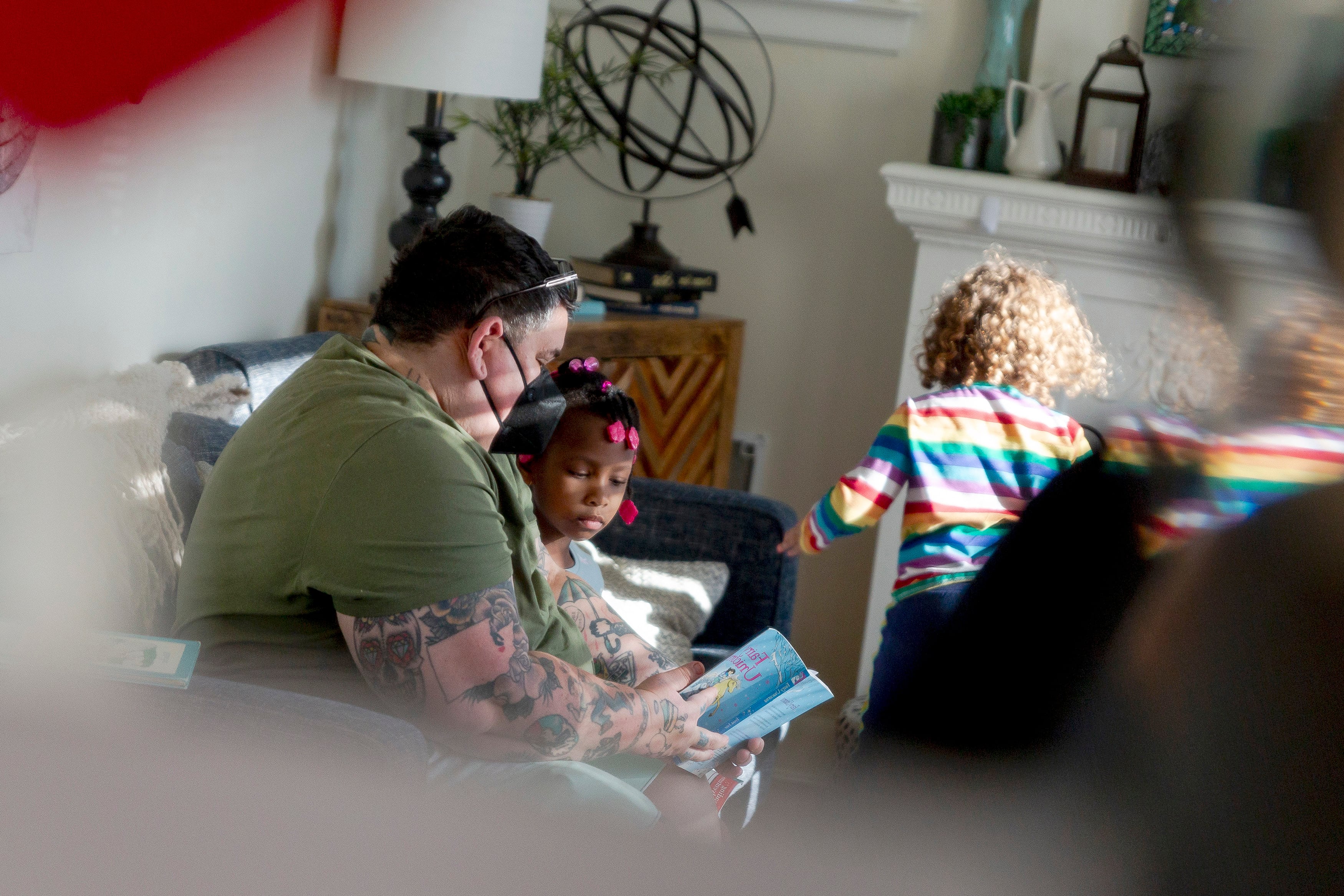Sign up for Chalkbeat Detroit’s free daily newsletter to keep up with the city’s public school system and Michigan education policy.
After years of failed attempts, bills to require Michigan schools to use the science of reading in early literacy instruction are likely to become law.
The Michigan legislature on Thursday approved two bipartisan bills that will change the way kids are taught to read in the state, which has long struggled with early literacy. Those struggles have worsened in recent years.
The bills were approved by the House of Representatives on Thursday and by the Senate in the spring.
Previous versions of the legislation gained some momentum over the last several years, but ultimately fell short. The bills now head to Gov. Gretchen Whitmer, who indicated her support for them in a Thursday statement.
“To build a brighter future for Michigan, we must ensure our students have the skills they need to succeed, including literacy, which is directly tied to lifelong education, income, and health outcomes,” Whitmer said. “Today’s commonsense, bipartisan package will allow teachers and tutors to use proven science of reading strategies to improve literacy.”
Amber Arellano, executive director of the nonpartisan research and advocacy group EdTrust-Midwest, said the passage of the bills represents a “moment of hope.”
The passage of the bills comes after recently released state standardized test results showed third grade proficiency in reading and writing was at an all-time low at the end of the last school year, with only 39.6% of third graders considered proficient. Proponents of the legislation pointed to the results on the Michigan Student Test of Educational Progress, known as the M-STEP, as a reason to pass one of the bills as soon as possible.
“It seems to me, there are some rather obvious steps we haven’t taken yet,” Sen. Jeff Irwin, a Democrat from Ann Arbor who championed previous failed iterations of the bills for years, said last month. “I’m hoping we can move forward with those obvious steps by weaving the science of reading into our curriculum.”
While the bills are designed to help kids with characteristics of dyslexia, those who support the legislation say it will support all children’s early literacy learning.
Dyslexia is a hereditary reading disability that affects around 5% to 20% of people. Students with dyslexia who go undiagnosed and without interventions are more likely to struggle in school. Studies show most people with dyslexia who get high-quality instruction early on, however, will become average readers.
The science of reading refers to a body of knowledge that emphasizes phonics along with building vocabulary and background knowledge.
Those opposed to the bills, mainly local district superintendents and administrators, worry school systems won’t receive the funding necessary to meet the new standards in the legislation. They also say the ongoing teacher shortage will make filling needed positions, such as literacy coaches, unfeasible.
Senate Bill 567 will require districts to screen all students for difficulty in decoding language and other characteristics of dyslexia. It would require interventions in the science of reading for struggling students. Those interventions will be based on each students’ needs and could include specialized phonics instruction, technology, or small group breakouts.
The bill calls for districts to make those changes by the 2027-28 school year.
The amended version of the bill that moved out of the House Education Committee Wednesday will give districts another year to comply with the new requirements and clarified that other types of instruction would be allowed after teachers attempt to use decoding, a key aspect of phonics instruction.
Another bill, Senate Bill 568, will put more stringent standards on teacher education programs. Universities will be required to provide instruction in the science of reading and best practices for teaching students with dyslexia.
Michigan has long had a literacy problem.
It was ranked 43rd in the country for fourth grade reading on the 2022 National Assessment for Educational Progress.
Michigan schools are not currently required to follow a set reading curriculum, though the state Department of Education gives some guidance on using evidence-based programs.
Reading instruction can vary widely within districts and even within classrooms in the same school, according to a 2022 policy brief by the Education Policy Innovation Collaborative, or EPIC. Among the districts that answered EPIC’s survey, many were using poorly rated or unrated curricula.
States that have passed bills similar to the ones proposed in Michigan have made improvements in early literacy scores, including Tennessee and Mississippi, Irwin said. Those bills served as a framework for his, he said.
Jeff Cobb, EdTrust-Midwest’s director of government affairs, said decades of research show early literacy is key to improving students’ overall education.
“If students read well by third grade, they have a better chance to succeed in school, are far more likely to go to college, participate in the job market and even have greater lifetime employment earnings,” he said.
This story has been updated to reflect the Michigan House of Representatives’ vote on the legislation.
Hannah Dellinger covers K-12 education and state education policy for Chalkbeat Detroit. You can reach her at hdellinger@chalkbeat.org.






